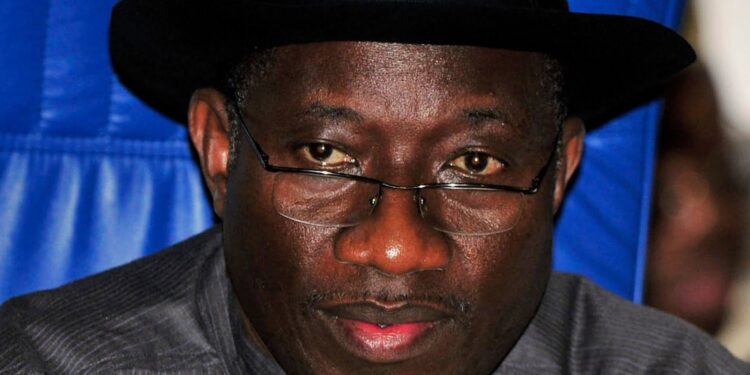Ex-President, Yar’Adua’s Aide Hid Letter To Make Me Acting President From NASS – Jonathan Reveals

Former President Goodluck Jonathan has revealed that a close associate of the late President Umaru Yar’Adua intentionally withheld a crucial letter that would have authorized him to assume the role of acting president, leading to the constitutional crisis that unfolded in Nigeria in 2010.
Speaking in an interview with the Rainbow Book Club, which began trending on Saturday, Jonathan revealed that President Yar’Adua had written a formal letter to the National Assembly before departing for medical treatment abroad, intending to transfer executive powers to his then-vice president. However, Jonathan said the aide who was entrusted with delivering the letter refused to submit it.
The refusal left Nigeria without a constitutionally recognised acting president or commander-in-chief for several months, even as Yar’Adua remained incapacitated.
Jonathan explained that although he could carry out certain functions as vice president — such as presiding over Federal Executive Council meetings and approving ministerial memos — he could not act as commander-in-chief without a formal transfer of power.
He described the resulting power vacuum as a dangerous situation for any nation and praised the National Assembly for invoking the “doctrine of necessity,” which allowed him to assume full presidential powers despite the absence of a formal letter.
Jonathan said: “There’s always a balancing between North and South, Muslims and Christians. And Yar’Adua was a Northern Muslim, serving as president. He took over from a Southern Christian, Obasanjo, who ruled for eight years.
“Definitely the Northern Muslims wanted Yar’Adua to at least do eight years before power would return to the South, likely to another Christian. But his health issues came up and it was a problem. That’s why even allowing me to act as president became an issue.”
He added: “One year that Yar’Adua was going for the medical checkup. Actually, a letter was written. Of course, the constitution says that for the vice president to act, the president would send a letter to the Senate and the House of Reps informing them.
“That letter was written, but the person who the letter was handed over to, I will not mention the name to you now, was one of the aides of Yar’Adua, refused to submit the letter to the National Assembly. And Yar’Adua became so ill that he had no control of issues.”
Jonathan continued: “So we had a country where the president was not available, and there was no acting president. Yes, as a vice president, you can take over some responsibilities of the president. You know the president of Nigeria has two main responsibilities.
“First, you are the chief executive of the country, so like a prime minister of a country. That, the vice president can assume, you don’t need any transfer. And I was doing that because we were having an executive council meeting, we were approving memos from ministers, so the government was going on.
“But there was no commander-in-chief. What is the second responsibility of the president of Nigeria, besides being the executive head of the country? And there’s nothing like acting commander-in-chief. Either you’re a commander-in-chief or not.”
He compared the Nigerian scenario to the US system: “But when you become an acting president, you are at the same time a commander-in-chief. So that was lacking, and no country allows that gap. A country like America, they don’t allow that gap at all.
“If an American president wants to, even if it’s a whitlow, that he requires an extension, that he will be off for five minutes, he will hand over to the vice president before that procedure. Immediately he regains consciousness, he takes over. But we stayed for some time.”
Jonathan concluded: “And that led to what they call the doctrine of necessity. When the National Assembly felt that the country was in a situation where it was not expected, they now have to initiate this doctrine of necessity. And they now made me to act as a president without a letter from Yar’Adua.”
Yar’Adua died in May 2010 after a prolonged illness. Jonathan completed his tenure and subsequently won the 2011 presidential election.





